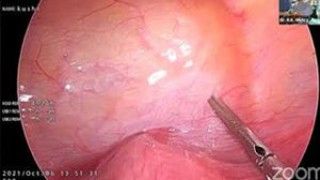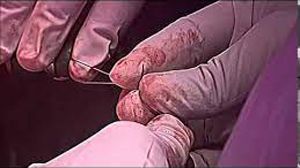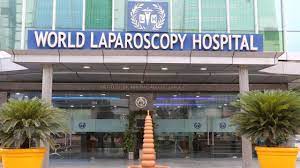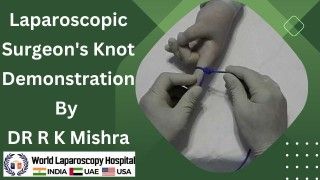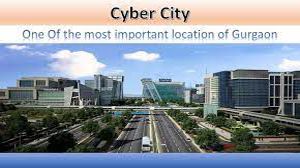Urgent intervention for a ruptured ectopic pregnancy: Preventing life-threatening complications
Add to
Share
1,799 views
Report
1 year ago
Description
An ectopic pregnancy is a medical emergency that requires immediate intervention to prevent life-threatening complications. When an embryo implants outside the uterus, typically in the fallopian tubes, it can lead to a ruptured ectopic pregnancy. In such cases, urgent medical attention is crucial to safeguard the health and well-being of the patient. A ruptured ectopic pregnancy occurs when the fertilized egg grows within the fallopian tube, causing it to rupture and result in internal bleeding. This condition requires immediate intervention to control the bleeding and remove the pregnancy tissue. Failure to address a ruptured ectopic pregnancy promptly can lead to severe blood loss, shock, and even death. The primary goal of urgent intervention for a ruptured ectopic pregnancy is to prevent life-threatening complications and preserve the patient's reproductive health. In most cases, surgical intervention is necessary to address the condition effectively. The specific procedure performed may vary depending on the severity of the rupture and the patient's individual circumstances. Surgical options may include laparoscopy, a minimally invasive procedure, or in more severe cases, laparotomy, which involves a larger abdominal incision. The surgeon will locate and remove the ectopic pregnancy, repair any damage to the fallopian tube, and address any bleeding or other complications. In addition to surgery, the patient may require blood transfusions and close monitoring to ensure stable vital signs and adequate recovery. Emotional support and counseling are also essential as patients navigate the physical and emotional impact of a ruptured ectopic pregnancy. Timely intervention for a ruptured ectopic pregnancy is critical in preventing further complications and preserving future fertility. After treatment, close follow-up care is necessary to monitor the patient's recovery and provide guidance regarding future pregnancy options and contraceptive methods. It is important for individuals to be aware of the signs and symptoms of an ectopic pregnancy, such as abdominal pain, vaginal bleeding, and dizziness, and seek immediate medical attention if they suspect they may be experiencing one. In summary, urgent intervention for a ruptured ectopic pregnancy is a life-saving measure that aims to prevent severe complications. Timely surgical intervention and appropriate post-operative care are crucial in preserving the patient's health and fertility. Raising awareness about ectopic pregnancies and the importance of seeking immediate medical attention can help ensure timely intervention and better outcomes for affected individuals. The urgency of addressing a ruptured ectopic pregnancy cannot be overstated, as it is a potentially life-threatening condition that requires immediate intervention. When a fertilized egg implants outside the uterus, typically in the fallopian tube, and ruptures, it can lead to severe internal bleeding and put the patient's life at risk. Prompt medical attention is essential in preventing life-threatening complications associated with a ruptured ectopic pregnancy. The primary objective of urgent intervention is to control the bleeding, remove the ectopic pregnancy, and ensure the patient's safety. Surgical intervention is typically required to address a ruptured ectopic pregnancy effectively. The specific procedure performed depends on various factors, including the extent of the rupture and the patient's overall condition. Minimally invasive techniques, such as laparoscopy, may be employed to access and remove the ectopic pregnancy while minimizing trauma to surrounding tissues. In more severe cases, open surgery, known as laparotomy, may be necessary to provide better access and manage extensive internal bleeding. During surgery, the ruptured fallopian tube may need to be repaired or, in some cases, removed to prevent further complications. The surgeon will take necessary measures to control bleeding, ensuring the patient's stability and optimizing the chances of a successful recovery. Following surgical intervention for a ruptured ectopic pregnancy, close monitoring and post-operative care are essential. This may include observation of vital signs, pain management, administration of intravenous fluids, and blood transfusions if necessary. Emotional support and counseling are also crucial to help the patient cope with the emotional impact of losing a pregnancy and the potential implications for future fertility. Recovering from a ruptured ectopic pregnancy is a physically and emotionally challenging process. Close follow-up care is vital to assess the patient's recovery, monitor for any complications, and provide guidance on future reproductive options. It is essential to discuss contraception methods and the potential impact on future pregnancies, as the risk of another ectopic pregnancy may be increased. Early detection of ectopic pregnancy symptoms, such as abdominal pain, vaginal bleeding, shoulder pain, and dizziness, is crucial. Recognizing these signs and seeking immediate medical attention can significantly improve the chances of timely intervention and a positive outcome. In conclusion, urgent intervention for a ruptured ectopic pregnancy is paramount in preventing life-threatening complications. Surgical intervention, coupled with appropriate post-operative care, is necessary to control bleeding, remove the ectopic pregnancy, and safeguard the patient's well-being. Timely medical attention, awareness of symptoms, and close follow-up care contribute to better outcomes for individuals affected by a ruptured ectopic pregnancy.
Similar Videos

